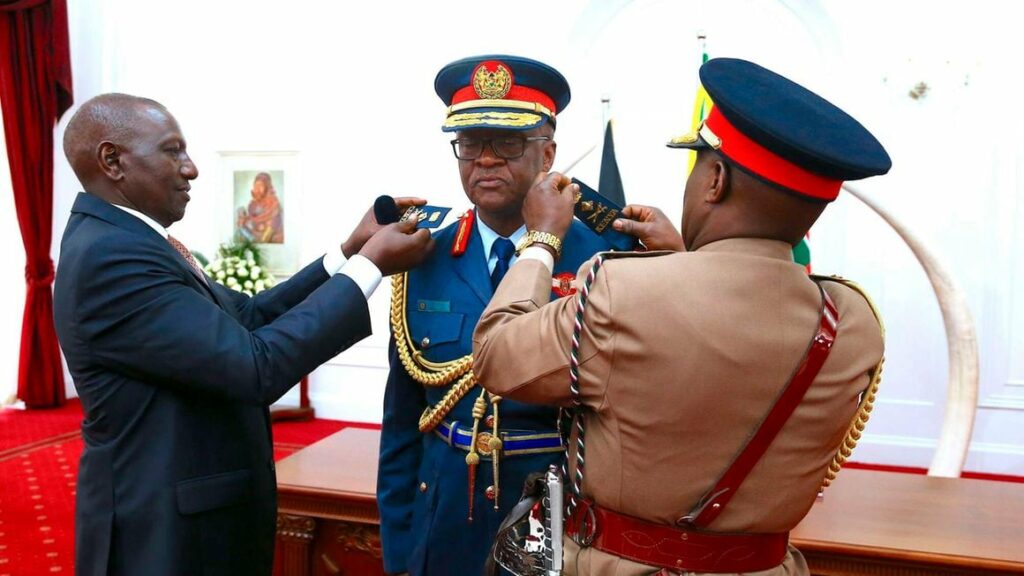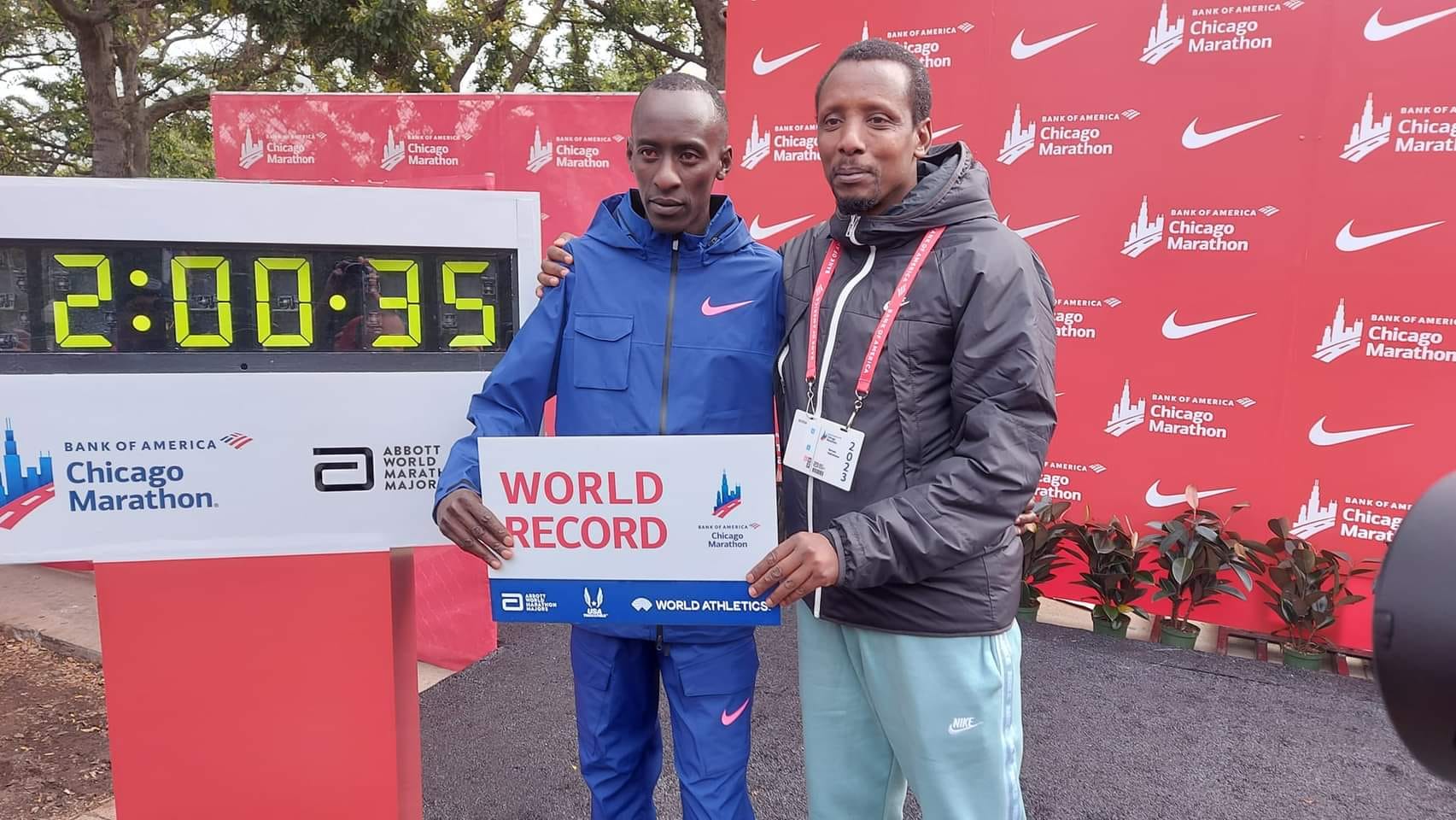The Muscle Gain Challenge by age is a fitness initiative designed to cater to the unique needs and considerations of individuals at different stages of life. The program recognizes that age plays a crucial role in determining one’s metabolism, hormonal levels, recovery capacity, and overall fitness potential. Tailoring muscle gain strategies to these age-specific factors can optimize results and promote long-term health.
Teenage Muscle Gain Challenge (Ages 13-19)
Focus: Emphasis on proper form, technique, and establishing a solid foundation.
Nutrition: A balanced diet with a focus on lean proteins, whole grains, and adequate hydration.
Exercise: Compound movements and strength training with an emphasis on bodyweight exercises initially.
Read Also : Top 10 Body Builders in The World
The Teenage Muscle Gain Challenge for individuals aged 13-19 is designed to help teenagers build a solid foundation for muscle development while prioritizing proper form, technique, and overall health. This phase of life is crucial for physical development, and with the right approach, teenagers can achieve muscle growth in a safe and effective manner.
- Proper Form and Technique
Importance: Emphasizing proper form and technique is crucial to prevent injuries and ensure that the muscle-building process is effective.
Guidelines: Teenagers should start with bodyweight exercises to master fundamental movement patterns before progressing to weighted exercises. Learning how to squat, lunge, push, pull, and hinge with proper form is essential.
- Balanced Diet
Importance: Nutrition plays a vital role in supporting muscle growth, overall health, and energy levels.
Guidelines:
Protein: Ensure an adequate intake of lean proteins (chicken, fish, tofu, legumes) to support muscle repair and growth.
Carbohydrates: Include whole grains, fruits, and vegetables for sustained energy levels during workouts.
Fats: Incorporate healthy fats (avocado, nuts, olive oil) for overall health and hormone production.
Hydration: Maintain proper hydration to support performance and recovery.
- Exercise Routine
Importance: Incorporating a well-rounded exercise routine is essential for balanced muscle development.
Guidelines:
Compound Movements: Focus on compound exercises such as squats, deadlifts, bench press, and overhead press to target multiple muscle groups.
Bodyweight Exercises: Start with bodyweight exercises like push-ups, pull-ups, bodyweight squats, and lunges to build strength and control.
Progressive Overload: Gradually increase the intensity of workouts by adding weight or progressing to more challenging exercises.
Rest and Recovery: Allow adequate rest between workouts to facilitate muscle recovery and prevent overtraining.
- Consistency and Patience
Importance: Building muscle takes time, and consistency is key for long-term success.
Guidelines:
Set realistic goals and track progress over time.
Be patient and avoid comparing progress to others.
Prioritize consistency in both workouts and nutrition.
- Supervision and Guidance
Importance: Teenagers should have proper supervision and guidance, especially when incorporating resistance training.
Guidelines:
-Work with a qualified trainer or seek guidance from experienced individuals.
-Focus on learning and mastering proper form before advancing to heavier weights.
-This Teenage Muscle Gain Challenge aims to promote a holistic approach to muscle development, emphasizing not only physical exercise but also proper nutrition, form, and overall well-being. It is crucial for teenagers to prioritize their health and take a gradual and safe approach to muscle gain during this important phase of physical development.
Early Adulthood Muscle Gain Challenge (Ages 20-29)
Focus: Building muscle mass while establishing a sustainable fitness routine.
Nutrition: Increased protein intake, attention to macronutrients, and portion control.
Exercise: Progressive resistance training with a mix of compound and isolation exercises.
The Early Adulthood Muscle Gain Challenge, tailored for individuals aged 20-29, is designed to capitalize on the prime years for muscle development while establishing a sustainable and healthy fitness routine. The program focuses on three key aspects: building muscle mass, optimizing nutrition, and implementing a well-rounded exercise regimen.
Building Muscle Mass
During early adulthood, the body is often more responsive to muscle growth due to higher levels of hormones like testosterone. The challenge places a significant emphasis on progressive resistance training, utilizing a combination of compound and isolation exercises. Compound exercises, such as squats and deadlifts, engage multiple muscle groups simultaneously, promoting overall strength and muscle development. Isolation exercises target specific muscle groups, allowing for a balanced and comprehensive approach to building muscle mass.
Nutrition
Nutrition is a critical component of the Early Adulthood Muscle Gain Challenge. To support muscle growth, there is an increased focus on protein intake. Protein is essential for muscle repair and synthesis. Additionally, attention is given to macronutrients such as carbohydrates and fats to ensure a well-rounded and balanced diet. Portion control is emphasized to prevent excessive calorie intake, promoting lean muscle gains without unnecessary fat accumulation.
Exercise
The exercise regimen is carefully crafted to cater to the specific goals of muscle gain and overall fitness. Progressive resistance training is at the core of the program, encouraging individuals to gradually increase the intensity of their workouts to continually challenge their muscles. This can involve adjusting weights, sets, and repetitions over time. The inclusion of both compound and isolation exercises ensures a comprehensive and effective approach to muscle development.
Sustainability and Consistency
Recognizing the importance of establishing a long-term fitness routine, the challenge places a strong emphasis on sustainability and consistency. Building healthy habits during this period sets the foundation for lifelong fitness. The program encourages individuals to find activities they enjoy, making it more likely for them to stick with their fitness routine over the years.
Recovery Strategies
While the focus is on building muscle, the challenge also recognizes the importance of recovery. Rest days, proper sleep, and stress management techniques are integrated to ensure optimal recovery between intense workouts. This helps prevent burnout, reduces the risk of injuries, and supports overall well-being.
Goal Setting and Tracking
Individuals are encouraged to set realistic and achievable goals. Tracking progress, whether through strength gains, changes in body composition, or other metrics, provides motivation and allows for adjustments to the program as needed.
Prime Adulthood Muscle Gain Challenge (Ages 30-45)
Focus: Balancing muscle gain with metabolic changes and potential lifestyle challenges.
Nutrition: Emphasis on nutrient-dense foods, consideration of hormonal changes, and regular hydration.
Exercise: Varied workouts, incorporating strength training, flexibility, and cardiovascular exercises.
The Prime Adulthood Muscle Gain Challenge, targeting individuals aged 30-45, involves addressing the specific physiological changes, lifestyle challenges, and nutritional considerations associated with this stage of life. The focus is on achieving optimal muscle gain while taking into account metabolic shifts and potential obstacles posed by busy lifestyles.
Balancing Muscle Gain with Metabolic Changes
Hormonal Changes: As individuals enter their 30s, there is a gradual decline in certain hormones like testosterone and growth hormone. These hormonal changes can impact muscle metabolism. Therefore, an effective muscle gain strategy should include resistance training to stimulate muscle growth and boost hormonal activity.
Metabolic Rate: Metabolic rate tends to decrease with age, making it essential to balance calorie intake with expenditure. A well-structured diet that aligns with energy needs and muscle-building goals is crucial. This may involve a slight caloric surplus to support muscle growth while avoiding excessive weight gain.
Nutrition
Nutrient-Dense Foods: Prioritize nutrient-dense foods to support overall health and muscle growth. Lean proteins, whole grains, fruits, vegetables, and healthy fats should be the foundation of the diet. These foods provide essential vitamins, minerals, and macronutrients necessary for muscle repair and growth.
Consideration of Hormonal Changes: Certain nutrients play a role in supporting hormonal balance. For example, adequate intake of omega-3 fatty acids, vitamin D, and zinc can positively impact testosterone levels. Including these nutrients in the diet can be beneficial for muscle gain.
Hydration: Proper hydration is often overlooked but is critical for muscle function and recovery. It aids digestion, nutrient absorption, and helps maintain optimal performance during workouts. Individuals should aim to consume an adequate amount of water throughout the day.
Exercise
Varied Workouts: Implement a well-rounded exercise routine that includes a mix of strength training, flexibility exercises, and cardiovascular workouts. This approach helps prevent muscle imbalances, enhances overall fitness, and reduces the risk of injury.
Strength Training: Prioritize progressive resistance training to stimulate muscle growth. Compound movements targeting major muscle groups, such as squats, deadlifts, and bench presses, should be incorporated. Adjusting the intensity and volume of strength training over time is essential for continued progress.
Flexibility and Cardiovascular Exercises: Include activities that promote flexibility, such as yoga or dynamic stretching, to maintain joint health and prevent stiffness. Cardiovascular exercises, such as brisk walking, cycling, or high-intensity interval training (HIIT), contribute to overall cardiovascular health and can aid in managing body composition.
The Prime Adulthood Muscle Gain Challenge, targeting individuals aged 30-45, involves addressing the specific physiological changes, lifestyle challenges, and nutritional considerations associated with this stage of life. The focus is on achieving optimal muscle gain while taking into account metabolic shifts and potential obstacles posed by busy lifestyles.
Midlife Muscle Gain Challenge (Ages 45-60)
Focus: Mitigating age-related muscle loss, joint health, and recovery.
Nutrition: Increased focus on nutrient absorption, potential dietary adjustments, and hydration.
Exercise: Modified training to accommodate potential joint issues, incorporating resistance and flexibility exercises.
The Midlife Muscle Gain Challenge for individuals aged 45-60 is a holistic approach aimed at addressing the specific health and fitness needs that arise during this stage of life. The primary focus is on mitigating age-related muscle loss, promoting joint health, and enhancing recovery mechanisms. This comprehensive program encompasses various aspects, including nutrition, exercise, and lifestyle adjustments.
Mitigating Age-Related Muscle Loss
As individuals enter their midlife years, they often experience a natural decline in muscle mass, known as sarcopenia. The Midlife Muscle Gain Challenge aims to counteract this process by implementing targeted resistance training exercises. These exercises are designed to stimulate muscle growth and improve overall strength. The program emphasizes progressive resistance, gradually increasing the intensity of workouts to challenge muscles and promote adaptation.
Joint Health
With aging, joint health becomes a crucial consideration. To address potential joint issues, the exercise regimen is modified to accommodate limitations and reduce the risk of injury. Low-impact activities and exercises that promote joint flexibility are incorporated. This may include activities such as swimming, yoga, or cycling, which are gentler on the joints while still providing an effective workout.
Recovery Strategies
Recovery becomes increasingly important as the body ages. The program includes strategies to enhance recovery mechanisms, such as incorporating rest days between intense workouts and emphasizing quality sleep. Adequate sleep is crucial for muscle repair and overall well-being.
Nutrition
Nutrition plays a pivotal role in the Midlife Muscle Gain Challenge. There is an increased focus on optimizing nutrient absorption and potentially making dietary adjustments. Adequate protein intake is particularly emphasized to support muscle repair and maintenance. Additionally, hydration is stressed to ensure optimal bodily functions and recovery.
Modified Training
The exercise routine is tailored to the unique needs of individuals in the 45-60 age group. Resistance training is integrated to build muscle mass, enhance metabolism, and improve overall body composition. Flexibility exercises are incorporated to maintain and improve range of motion, promoting joint health and preventing stiffness.
Lifestyle Adjustments:
Beyond exercise and nutrition, lifestyle adjustments are encouraged. This may involve stress management techniques, mindfulness practices, and habits that contribute to overall well-being. These adjustments aim to address factors that can impact both physical and mental health during midlife.
Senior Muscle Gain Challenge (Ages 60+)
Focus: Preserving muscle mass, bone density, and overall functionality.
Nutrition: Adequate protein intake, calcium for bone health, and attention to micronutrients.
Exercise: Low-impact strength training, flexibility exercises, and balance work to reduce the risk of falls and injuries.
Focus: Preserving muscle mass, bone density, and overall functionality.
Muscle Mass: Preserving muscle mass is crucial for maintaining strength, balance, and overall functionality in seniors. As individuals age, there is a natural tendency to lose muscle mass, which can lead to decreased mobility and increased frailty. The challenge emphasizes strategies to counteract this loss and promote the maintenance and growth of muscle tissue.
Bone Density: Bone health is paramount for seniors, as bones tend to lose density with age, leading to an increased risk of fractures and osteoporosis. The challenge incorporates measures to support bone density through nutritional choices and targeted exercises that promote bone strength.
Overall Functionality: Beyond muscles and bones, overall functionality encompasses various aspects of daily living, including cognitive function, mobility, and independence. The challenge aims to enhance these aspects by addressing physical, nutritional, and cognitive components.
Nutrition
Adequate Protein Intake, Calcium for Bone Health, and Micronutrient Attention
Adequate Protein Intake: Protein is essential for muscle maintenance and repair. The challenge recommends an adequate intake of high-quality protein sources, such as lean meats, dairy, legumes, and nuts, to support muscle health. Protein intake is distributed throughout the day to optimize its utilization by the body.
Calcium for Bone Health: Calcium is a key mineral for bone strength. The challenge includes a focus on calcium-rich foods like dairy products, leafy green vegetables, and fortified foods. Additionally, vitamin D, which aids calcium absorption, is emphasized through exposure to sunlight and supplementation if necessary.
Micronutrient Attention: In addition to protein and calcium, attention is given to micronutrients such as vitamin K, vitamin C, and magnesium, which play roles in bone health, immune function, and overall well-being. A well-balanced and nutrient-dense diet is encouraged to address these needs.
Exercise
Low-Impact Strength Training, Flexibility Exercises, and Balance Work
Low-Impact Strength Training: Resistance training is integral for preserving and building muscle mass. However, to minimize the risk of injury, the challenge incorporates low-impact strength training exercises using resistance bands, body weights, or light weights. This helps seniors improve strength without putting excessive stress on joints.
Flexibility Exercises: Aging can lead to reduced flexibility, impacting the range of motion and increasing the risk of injury. The challenge includes flexibility exercises such as stretching and yoga to enhance joint mobility and maintain overall flexibility.
Balance Work: Falls are a significant concern for seniors, often resulting in serious injuries. Balance exercises, including activities that challenge stability, are included to reduce the risk of falls and enhance overall balance and coordination.
Regardless of age, the Muscle Gain Challenge emphasizes the importance of consulting with healthcare professionals and fitness experts before embarking on any significant fitness journey. Personalized plans, regular health check-ups, and adaptive approaches to training and nutrition are key elements of the challenge to ensure participants achieve their muscle gain goals while prioritizing overall health and well-being.













